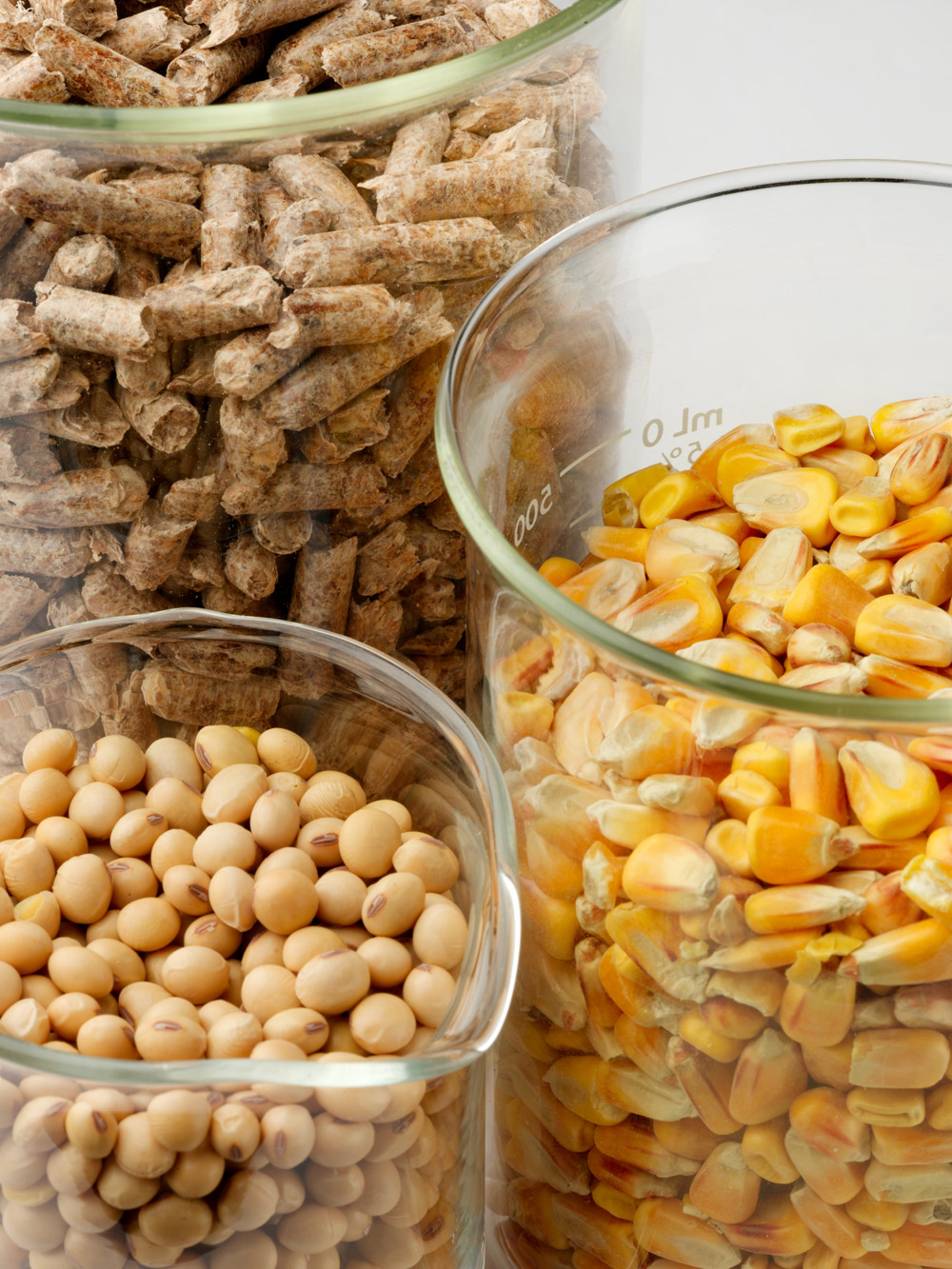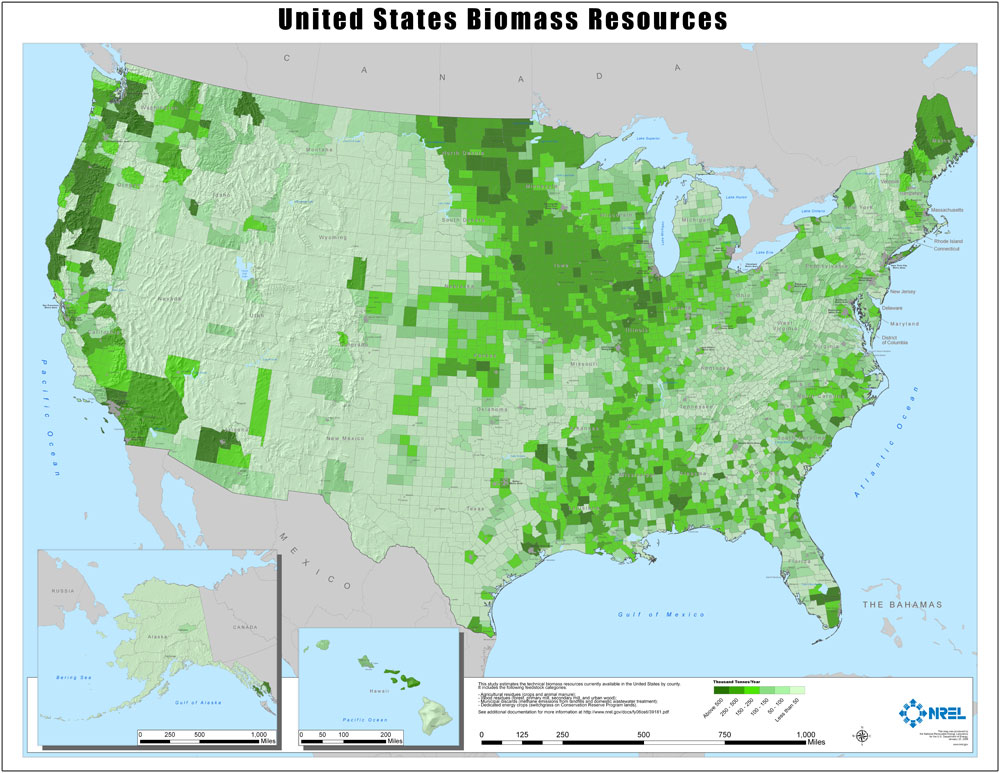What Biomass is

Examples of Biomass include wood, crops, crop residues, and other forms of organic waste.
- Biomass is matter composed of the remains of dead organisms (organic matter) such as plants and animals and their waste products.
- All organic matter contains stored energy from the sun.
- When burned, the chemical energy in biomass is released as heat.
- Wood provided about 90 percent of the fuel used in the United States until the middle of the 19th century, when fossil fuels largely replaced biomass as a fuel source.
- Today, biomass provides about 4.4 percent of the energy needs of the United States.
- All organic matter contains stored energy from the sun.
Fossil fuels (coal, petroleum, natural gas) were made from organic matter but are not biomass because they took millions of years to develop and are not renewable. Biomass is renewable because plants can always be replaced, and waste will always exist.

NREL National Biomass Poster: This map shows estimate for biomass resources including crop and wood residues, energy crops, and animal manure. Map courtesy of National Renewable Energy Laboratory.
- Biomass can be used to generate various forms of energy such as heat, electricity, and biofuels.


